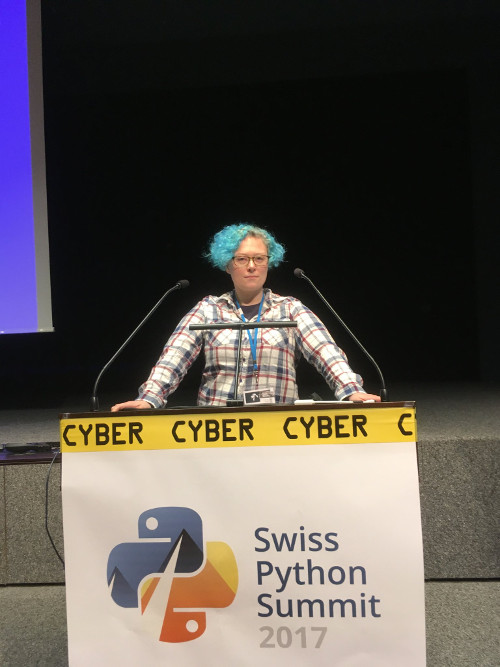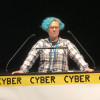There was a good variety of talk topics, including some where I didn't previously know you could use Python that way. For example, I enjoyed Raphael Nestler's talk about using Python for lab testing of sensors at Sensirion. He gave a good description of the challenges of keeping environments consistent between groups and labs. This talk was particularly interesting to me because of the work I used to do at Owlstone, as an applications scientist for chemical sensors.
Barnaby Skinner's account of scraping and analysing the Federal Administrative Court's database of deportation appeal verdicts was exciting and inspiring. He and his team found that, despite official claims to the contrary, there is a correlation between judges' politial affiliations and the likelihood they will refuse an appeal. You can read a lot more about their work on their GitHub repo for the project.
On a lighter note, I also really liked Radomir Dopieralski's talk about running Python on microprocessors. He combined cute hand-drawn slides with lots of details on a very interesting topic.

Photo of me being CYBER courtesy of dns2utf8.
My talk was about Python, Unicode and Writing Systems (slides here, video soon to be online). I explained a few of the ways you can trip up with localisation even now that Python 3 treats strings as Unicode by default (instead of ascii), and what you can do about it. One of the audience questions at the end was whether there are any Python libraries to support boustrophedonic text, where the reading direction alternates line by line. I haven't been able to find any — let me know if you're aware of one!
In the gaps between and after talks, I caught up with Caro and Oleg and had a good conversation with Florian about his project Qutebrowser, a keyboard-driven browser.
Thanks very much to Liip for sponsoring me with time and travel costs to get to the Swiss Python Summit. I'll definitely be there again next year, and I encourage you to come along! In the meantime, I'll be speaking at PyCon Italia next weekend and I hope to attend PyCon Poland in the summer.
